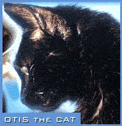Amy Kight—executive director of Busch Wildlife Sanctuary, a multifaceted operation in Jupiter, Florida serving as wildlife refuge, veterinary hospital, rehabilitation facility, and education center–recalls loving animals so much, so young, that she made an arrangement to start helping out at a veterinarian’s office at age six.  Kight goes on to note this represents a lifelong passion—she remained at the vet’s office into her 20s—propelling her to her present job running Busch Wildlife Sanctuary. The core of the conversation was discussing the 19-acre parcel of land Busch purchased, and the game plan they’re formulating to move every aspect of the Sanctuary—including the 200 permanent animal residents, among them an alligator, crocodile, bears, bobcats, Florida panthers, snakes, raptors, and parrots. It’s a highly ambitious, panoramic relocation, and Kight answers the proverbial
Kight goes on to note this represents a lifelong passion—she remained at the vet’s office into her 20s—propelling her to her present job running Busch Wildlife Sanctuary. The core of the conversation was discussing the 19-acre parcel of land Busch purchased, and the game plan they’re formulating to move every aspect of the Sanctuary—including the 200 permanent animal residents, among them an alligator, crocodile, bears, bobcats, Florida panthers, snakes, raptors, and parrots. It’s a highly ambitious, panoramic relocation, and Kight answers the proverbial  $64,000 question—Why?—by explaining that the hospital typically sees an 8-10% increase in the number of patients at the hospital each year, so one major goal of moving to the new campus is broadening its capacity to treat that ever-expanding group of animals. Mentioning that the Sanctuary is currently leasing 11 acres, but only actively using about six, Kight says the new 19-acres spread will also allow them to provide expanded habitats for some of the resident animals, and they’re contemplating other programs or services the larger digs might allow them to launch; a significant difference is Busch will own, as opposed to lease, this property. Kight touches on “Inside Busch Wildlife Sanctuary,” the facility’s recently unveiled monthly podcast, which, she says, provides glimpses of the resident animals, Sanctuary keepers and caretakers, educational programs, and will likely devote some episodes to documenting the relocation effort. (https://www.buschwildlife.org, https://www.facebook.com/BuschWildlife/, https://www.instagram.com/buschwildlife/?hl=en)
$64,000 question—Why?—by explaining that the hospital typically sees an 8-10% increase in the number of patients at the hospital each year, so one major goal of moving to the new campus is broadening its capacity to treat that ever-expanding group of animals. Mentioning that the Sanctuary is currently leasing 11 acres, but only actively using about six, Kight says the new 19-acres spread will also allow them to provide expanded habitats for some of the resident animals, and they’re contemplating other programs or services the larger digs might allow them to launch; a significant difference is Busch will own, as opposed to lease, this property. Kight touches on “Inside Busch Wildlife Sanctuary,” the facility’s recently unveiled monthly podcast, which, she says, provides glimpses of the resident animals, Sanctuary keepers and caretakers, educational programs, and will likely devote some episodes to documenting the relocation effort. (https://www.buschwildlife.org, https://www.facebook.com/BuschWildlife/, https://www.instagram.com/buschwildlife/?hl=en)

ALSO: I spoke briefly with Don Goldstein, the show’s longtime “Greyhound Correspondent,” weighing in with some observations tied to greyhound racing in Florida ending when 2020 did. Goldstein explained that people who imagined the end of Florida dog racing meant an idyllic new retired life for all the dogs had to understand that a number of those dogs had not completed their careers—being sent to one or another of the still-functioning U.S. dog tracks (one in Arkansas, one in Iowa, two in West Virginia). Goldstein also helped illuminate, in the wake of Florida’s remaining tracks closing down, why there are so few greyhounds currently available to adopt.
COMEDY CORNER: Martha Kelly’s “Horses Hate That We Ride Them” (https://marthakelly.net)
MUSIC: Rebekah Pulley’s “Talking Animals Theme,” instrumentals
NAME THAT ANIMAL TUNE: We didn’t play “Name That Animal Tune” today.
AUDIO ARCHIVE:
Listen Online Now:



